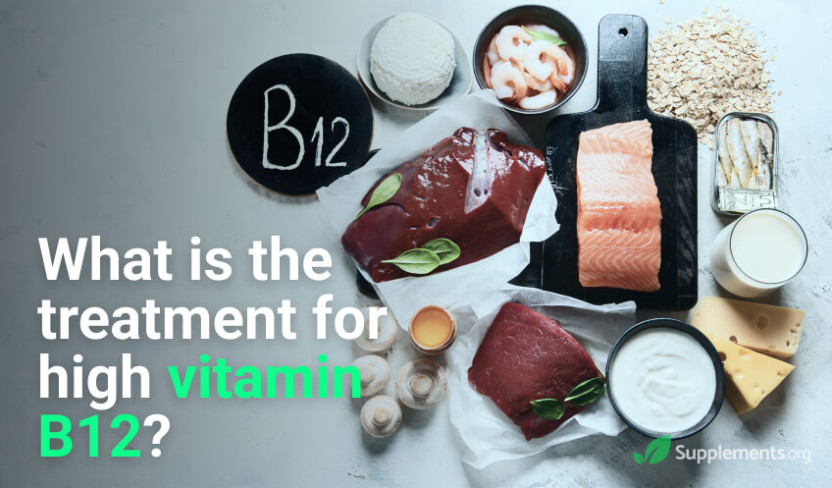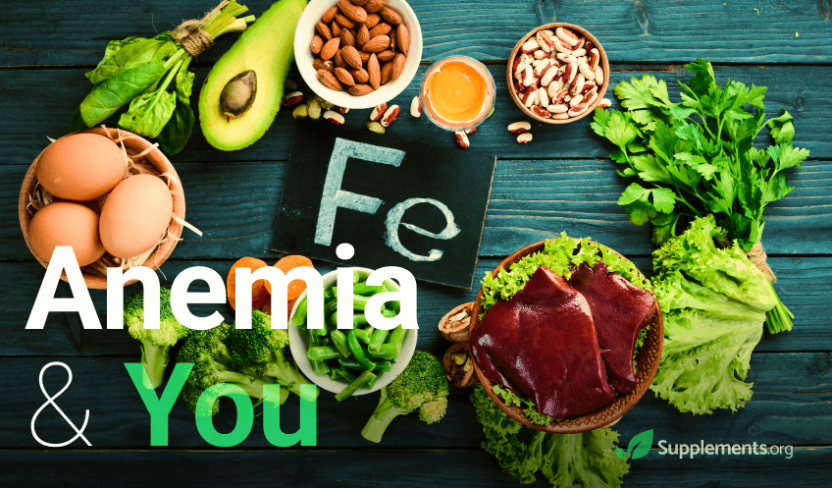What is the treatment for high vitamin B12 ? Cobalamin – Your Natural Energizing Power-Up !

You have a ton of choices for B12 supplementation, both in mixtures with other helpful nutrients and as a pure vitamin supplement. You can’t go wrong with any of the reputable brands that produce Vitamin B12 supplements, though they do have mild differences that need to be researched on a case-by-case basis. There is no one singular brand that reigns supreme over all others. That’s why the variety of these vitamin supplements is so welcome.
An Essential Nutrient for Optimal Health
gfghhjk
An Essential Nutrient for Optimal Health.
Vitamin B12, also known as cobalamin, is an essential nutrient that our body needs to function properly. It’s called Cobalamin on account of how it’s the only vitamin that contains a metal – cobalt. Our body needs vitamins and minerals to maintain good health, and vitamin B12 plays a crucial role in many vital bodily functions.
It helps the formation of red blood cells, nerve vitality, DNA synthesis, and a healthy immune system. Without enough of this important vitamin, our body can experience a range of adverse effects on our health and wellbeing.
What Happens When You Don't Get Enough B12?
Have you been feeling more tired lately? Have you noticed a lack of energy or feelings of weakness? If you have, it might be because you're not getting enough Vitamin B12. A deficiency in B12 can lead to a variety of symptoms that can affect our quality of life.
One major symptom is fatigue. Without adequate B12, our red blood cells cannot carry oxygen efficiently throughout the body. This can cause us to feel tired, weak, and run down. Another common symptom of B12 deficiency is brain fog and difficulty concentrating. Our nerve cells rely on B12 to maintain their protective covering (myelin sheath), and low levels can lead to problems with cognition and memory.
If left untreated, B12 deficiency can also lead to other serious complications such as nerve damage and anemia. It is crucial to identify a deficiency as early as possible.
Certain groups of people are at higher risk for B12 deficiency, including vegetarians and vegans who don’t consume animal products, those with digestive issues that affect nutrient absorption (e.g Crohn's disease), the elderly, and those who have had gastrointestinal surgery or have been diagnosed with pernicious anemia.
If you're experiencing any of the above symptoms – fatigue, weakness, brain fog – especially if you fall in one of the high-risk groups mentioned above, you should speak with your doctor and get your B12 levels checked. This vital nutrient is crucial for optimal health, so don’t neglect its importance!
How to Identify a B12 Deficiency.
Identifying a B12 deficiency can be tricky as many symptoms are often subtle and can be mistaken for other conditions. However, if left untreated, B12 deficiency can cause irreparable damage to the nervous system, cognitive problems, pernicious anemia, and other health issues.
Some common physical symptoms of vitamin B12 deficiency may include tiredness or fatigue, weakness, pallor, rapid heartbeat, shortness of breath, tingling or numbness in the limbs, diarrhea or constipation. In severe cases, there could also be difficulty maintaining balance and coordination which can hinder daily activities.
It is also worth noting that a B12 deficiency can cause psychological or cognitive symptoms which can include anxiety, depression, confusion, memory loss and even dementia.
In order to diagnose a B12 deficiency a blood test must be performed to determine vitamin B12 levels in the body. A normal B12 level usually ranges from 190 to 900 nanograms per milliliter (ng/mL). Levels below 200 ng/mL are generally considered low and indicate a deficiency.
Fortunately, if you suspect that you might have a B12 deficiency, treatment options are available. In minor cases increasing consumption of vitamin B12-rich foods can be helpful. For moderate to severe cases oral supplements or injections are required.
It is important to promptly address vitamin deficiencies - including B12 - before it becomes chronic. Monitoring and keeping record of personal physical changes (including energy levels and mood) will make it easier identify any abnormal symptoms related to the vitamin levels. By taking small steps to improve our diet and monitoring conditions we can protect our health and maintain a healthy level of Vitamin B12.
Ultimately, it falls on your physician and a medical analysis to give you a clear answer about your Vitamin B12 levels. Unfortunately, despite being an important vitamin, Vitamin B12 deficiency is widespread globally.
The Scary Symptoms of Vitamin B12 Deficiency.
Many of us may not realize that we are not getting enough Vitamin B12 until we notice some changes in our body and overall wellbeing. Unfortunately, the symptoms of Vitamin B12 deficiency may not be immediately evident since they can manifest in several ways. Here are a few symptoms that are associated with Vitamin B12 deficiency:
1. Fatigue: Feeling tired all the time could be related to a lot of different factors, but fatigue related to B12 deficiency can happen early on since this vitamin plays a crucial role in energy production.
2. Memory loss and cognitive problems: B12 plays an essential role in protecting our brains from shrinkage and helping with memory, among other functions. Hence, many people with Vitamin B12 deficiency can experience cognitive symptoms such as memory loss or brain fog.
3. Pale skin: This happens when your body is not generating sufficient red blood cells.
4. Dizziness or lightheadedness: When our bodies don’t get enough oxygen due to a lack of red blood cells, it could cause us to become dizzy and lightheaded.
5. Vision impairment: Vitamin B12 deficiency can result in vision loss or blurred vision because it damages the optic nerve.
Keep in mind that these symptoms are not exclusive to a Vitamin B12 deficiency, but they could indicate that you are not getting enough of the nutrient from your diet. If you are experiencing any of these surprising symptoms, it may be worth seeing a doctor to undergo screening tests for Vitamin B12 deficiency.
The Importance of Proper B12 Absorption
Vitamin B12 is essential for many functions in the body, from the proper functioning of red blood cells to the maintenance of a healthy nervous system. However, simply ingesting B12-rich food or supplements is not enough. Proper absorption is needed for B12 to be effective in the body.
B12 is absorbed in a complex process that involves several steps, beginning in the stomach and ending in the small intestine. First, dietary B12 is released from protein-bound sources by stomach acids and enzymes. Next, special proteins called intrinsic factors (IF) produced by cells in the stomach bind with B12 to enable absorption.
Without sufficient intrinsic factor, or if your body's ability to produce this factor is impaired, little of the ingested B12 will be absorbed. This can cause serious health problems since B12 deficiency leads to severe anemia and nerve damage.
Proper absorption of B12 is crucial for maintaining proper health. This highlights why it's important to maintain a healthy digestive system not only to just get adequate vitamins but also to effectively absorb and use them.
Can You Reverse the Damage of B12 Deficiency?
It absolutely depends on how severe the deficiency has been. If left undiagnosed or untreated for long, it can permanently damage your nervous system causing irreversible signs of decline such as confusion and dementia.
However, all hope is not lost. Early intervention is available; either in the form of food habits, oral supplements or injections. And yes, there are such solutions available even if you have very strict dietary needs or limitations. Ideally, you can reverse permanent damage and return vitality to your body if you get on a proper regimen quickly enough. Either way, you should immediately seek an accurate diagnosis by a medical doctor.
Treating B12 Deficiency with Supplements:
If you have been diagnosed with a B12 deficiency, your doctor may recommend that you take supplements to help treat the deficiency. In most cases, supplements are the best way to ensure that you are getting the amount of B12 your body needs.
When it comes to choosing a B12 supplement, there are various types available on the market to select from. One type is called cyanocobalamin. This is the most common type of B12 supplement and is usually found in multivitamins or fortified foods. Another type is methylcobalamin, which appears to be more beneficial for people with certain health disorders.
It is important to make sure you are taking high-quality B12 supplements. Some supplements contain fillers and other ingredients that may not be good for your health. Make sure to read the label carefully and choose a reputable brand.
Consult your physician before taking any supplements since it is possible that they may interfere with any medications you may be taking. They will also verify whether the supplements will be effective for your particular health status.
The different types of available supplements need to be regarded with care so that you take a supplement that suits your health requirements— ensuring that it is pure and directed by indicated medical personnel as an appropriate dose for your need. It's always wise to consult with your doctor before starting any supplement regimen for verification and ensuring the right complement without interference with preexisting medication or other ongoing treatments.
Which Type of B12 is Best for Me?
When it comes to choosing which type of Vitamin B12 is best for you, it's important to identify the specific reasons why you're taking the supplement. You're choosing between cyanocobalamin, methylcobalamin, and adenosylcobalamin. Cyanocobalamin is commonly found in supplements and foods, but some people may have trouble converting it to an active form in their bodies.
On the other hand, methylcobalamin and adenosylcobalamin are more bioavailable and easily utilized by the body. It's also worth noting that methylcobalamin is typically the preferred form for nervous system support. Make sure to consult with a healthcare professional before deciding which type of B12 is right for you.
The Importance of Finding High-Quality B12 Supplements:

B12 supplements come in various forms, including tablets, capsules, lozenges, and injectables. One thing to keep in mind is that the most common form of B12 found in supplements is cyanocobalamin, which is also the form used in most clinical studies.
Additionally, be sure to look for a supplement that does not contain any unnecessary fillers or additives. Doing a little bit of research beforehand can help you find a high-quality B12 supplement that meets your specific needs.
Most Vitamin B12 supplements that are produced by reputable companies should be compatible with most people across the board, but each individual is unique. You also have to consider any ailments you might be suffering from as well as any medications you might be taking that could harm your experience with the B12 supplements. For example, oral contraceptives such as birth control pills, potassium supplements, and folate supplements should not be mixed with vitamin B12 supplements without consulting a healthcare provider.
Common Sources of Vitamin B12:
Eating a well-balanced diet that includes animal products is the best way to obtain vitamin B12.
Foods that are rich in vitamin B12 include animal-based products such as meat, poultry, fish, eggs, and dairy. Shellfish like clams and oysters are also excellent sources of this essential nutrient. However, it can be difficult for individuals following a vegetarian or vegan diet to include enough vitamin B12 in their diet due to its limited availability in plant-based foods.
Fortified foods like breakfast cereals, nutritional yeast, and milk alternatives like soy milk can help individuals meet their B12 needs.
It’s important to note that some individuals may have difficulty absorbing vitamin B12 properly due to conditions like atrophic gastritis or pernicious anemia. Additionally, aging can affect vitamin absorption rates. If you find it challenging to get adequate amounts of vitamin B12 through dietary sources or fortified foods, talk to your doctor or healthcare provider about supplementation.
In summary, including sufficient Vitamin B12 in your diet is crucial for optimal bodily functioning. Luckily, many dietary sources provide adequate amounts. When supplementing, ensure the quality of the product and any other specific needs with a healthcare provider.
Getting Enough B12 on a Plant-Based Diet:
If you're eating a plant-based diet, you might be wondering if it's possible to get enough vitamin B12 without consuming animal products. The answer is yes, with proper planning. Many plant-based foods are fortified with B12, such as breakfast cereals, plant-based milk and yoghurt alternatives, and meat substitutes. Reading the nutrition label can help you identify foods that contain B12. However, it's important to note that the fortification process can vary between products, and therefore, the amount of B12 may differ.
Mushroomsy67ttyuhhh, seaweed, nutritional yeast, and fortified plant-based meat and dairy alternatives are natural sources of Vitamin B12 for those following a plant-based diet. However, these sources may not provide enough B12 to meet the recommended daily intake on their own. Therefore, it's essential to combine these natural sources with fortified foods or supplements.
Who is at Risk for B12 Deficiency?
While everyone needs Vitamin B12, some people may have a higher risk of developing a deficiency.
This includes individuals who follow a vegan or vegetarian diet, as B12 is mainly found in animal-based products.
Those who have had weight-loss surgery or gastrointestinal diseases like celiac disease or Crohn's disease can also be at risk due to difficulties in absorbing B12.
Aging adults are another group that may have deficiencies due to the body's decreased ability to absorb nutrients over time.
Pregnant and breastfeeding women require more B12 as it is important for the baby's development. It is essential to be aware of these risks and to get proper levels of B12 through supplementation or diet.
Individuals with gastrointestinal disorders that affect the absorption of nutrients from food, as well as those who have had bariatric surgery or other intestinal surgeries are at risk as well.
And of course, people on restrictive diets are at risk of not getting enough B12 from conventional means.
Can Too Much B12 be Harmful?
The short answer is no, taking too much B12 is generally not harmful. Vitamin B12 is a water-soluble vitamin, which means that excess amounts are excreted through urine. Therefore, it is difficult to consume too much from dietary sources alone. The RDA (recommended daily allowance) for Vitamin B12 is only 2.4 micrograms per day.
However, taking high doses of B12 in supplement form may have side effects such as mild diarrhea, itching, rash, headache, nausea and vomiting. In some cases, extremely high levels of B12 can cause more serious symptoms such as shortness of breath, numbness and tingling in the limbs, and chest pain.
Consuming large quantities of vitamin B12 can mask other underlying health conditions such as pernicious anemia and neuropathy. In addition, people with kidney disease should avoid B12 supplements unless under careful medical supervision.
Furthermore, some individuals may unnecessarily supplement with high doses of B12 for fear of deficiencies due to claims that it helps increase energy levels or promote weight loss. However, there is little evidence to support these claims.
While vitamin B12 is generally safe to consume in moderate amounts from dietary sources or daily multivitamins, care should be taken when it comes to high doses of supplements to avoid potential risks or negative effects on the body's functionality. Always consult with a healthcare professional before taking any supplements beyond the recommended daily intake.
B12 and Aging: Why Seniors Need to Pay Extra Attention:
As we age, our bodies require different nutrients to maintain optimal health. Vitamin B12 is one such nutrient that becomes increasingly important for seniors to pay attention to as they get older. This is because as we age, our bodies naturally start to produce less stomach acid which inhibits our ability to absorb vitamin B12 from food sources. Additionally, many medications commonly prescribed to seniors for conditions such as heartburn or reflux can further compromise their ability to absorb adequate amounts of vitamin B12.
B12 deficiency can manifest in several different symptoms, including fatigue, weakness, memory loss, depression, and even neurological issues if left unchecked. Fortunately, these symptoms can be easily managed by increasing B12 intake through proper supplementation or diet.
Supplementing with oral B12 supplements or taking B12 injections can be highly effective in restoring B12 levels in seniors experiencing deficiency symptoms. For those who prefer dietary sources, incorporating more animal products such as beef liver, sardines, and clams into their diet can help ensure adequate intake of this essential nutrient.

B12 and Pregnancy: The Importance for Mom and Baby
Vitamin B12 plays a crucial role in fetal development during pregnancy. It is responsible for proper brain development, nervous system functions, red blood cell formation, and many other essential processes. It is therefore extremely important for expecting mothers to maintain adequate levels of this nutrient throughout their pregnancy.
Pregnant women who are vegetarian or vegan may be at increased risk of vitamin B12 deficiency because many plant-based foods are not rich sources of this nutrient. Unfortunately, low levels of Vitamin B12 in pregnant women can lead to serious health risks for the developing baby, including developmental delays and neurological issues.
It's important for expecting mothers to monitor B12 intake and supplement as appropriate during pregnancy. Daily prenatal supplements including B12 can help to prevent any deficiencies and reduce the risk of adverse effects on both mom and baby. Additionally, incorporating foods rich in Vitamin B12 such as animal products or fortified cereals can help expecting mothers achieve adequate levels of this essential nutrient.
Vitamin B12 Supplements. What Are My Options?
B12 supplements come in different forms and dosages. These supplements can be found in the form of capsules, tablets, lozenges, and sublingual drops. It is important to choose the right one to achieve optimal blood levels.
The most common form of B12 supplement is cyanocobalamin, which is easy to find at most drug stores and online. It is generally less expensive than other forms of B12 supplements and has a longer shelf life. However, some people may have trouble converting cyanocobalamin to its active form, methylcobalamin.
Methylcobalamin is increasingly becoming more popular, especially among those who have difficulty absorbing cyanocobalamin. Methylcobalamin is the active form of Vitamin B12, making it more effective in raising our blood levels of B12. It’s also the form found naturally in foods, and research suggests it may be better utilized by the body than cyanocobalamin.
Another form of Vitamin B12 supplement is hydroxocobalamin. It is usually administered by injection and is known to have a longer lasting effect on our body compared to other forms. It’s the preferred form when treating people with severe deficiency symptoms such as fatigue, dementia, and numbness.
When choosing a Vitamin B12 supplement, it is important to consider the absorption rate - that is how well your body will absorb it. Sublingual forms like sprays or lozenges are usually better absorbed than vitamin capsules or tablets we swallow. As with all supplements, it is important to consult a healthcare professional before starting any Vitamin B12 supplement regimen.
How to Choose the Right B12 Supplement?
Choosing the right B12 supplement can feel overwhelming with the plethora of options available. However, it's important to consider a few factors when selecting a B12 supplement to ensure optimal absorption and effectiveness.
First and foremost, it's essential to determine whether you require a B12 supplement in the first place. You can ask your healthcare provider for a blood test to determine if you have a deficiency.
Whether you prefer taking capsules, tablets, gummies, or sublingual drops is also something you need to keep in mind when choosing the right B12 supplement. Sublingual drops placed under your tongue are believed to offer better absorption than capsules or tablets that must pass through the digestive system.
Gummies can be more fun to take, but it's important to check the sugar content and quality of ingredients. They’re preferable for regular B12 supplementation for children, on account of being fun and conventionally tasty.
References
- O'Leary F, Samman S. Vitamin B12 in health and disease. Nutrients. 2010 Mar;2(3):299-316. doi: 10.3390/nu2030299. Epub 2010 Mar 5. PMID: 22254022; PMCID: PMC3257642.
- Al Amin ASM, Gupta V. Vitamin B12 (Cobalamin) [Updated 2023 Jan 9]. In: StatPearls [Internet]. Treasure Island (FL): StatPearls Publishing; 2023 Jan-. Available from: ncbi.nlm.nih.gov/books/NBK559132
- Ankar A, Kumar A. Vitamin B12 Deficiency. [Updated 2022 Oct 22]. In: StatPearls [Internet]. Treasure Island (FL): StatPearls Publishing; 2023 Jan-. Available from: ncbi.nlm.nih.gov/books/NBK441923
- Shipton MJ, Thachil J. Vitamin B12 deficiency - A 21st century perspective . Clin Med (Lond). 2015 Apr;15(2):145-50. doi: 10.7861/clinmedicine.15-2-145. PMID: 25824066; PMCID: PMC4953733.
- Wolffenbuttel BHR, Wouters HJCM, Heiner-Fokkema MR, van der Klauw MM. The Many Faces of Cobalamin (Vitamin B12) Deficiency. Mayo Clin Proc Innov Qual Outcomes. 2019 May 27;3(2):200-214. doi: 10.1016/j.mayocpiqo.2019.03.002. PMID: 31193945; PMCID: PMC6543499.
- Azzini E, Raguzzini A, Polito A. A Brief Review on Vitamin B12 Deficiency Looking at Some Case Study Reports in Adults. Int J Mol Sci. 2021 Sep 7;22(18):9694. doi: 10.3390/ijms22189694. PMID: 34575856; PMCID: PMC8471716.
- Langan RC, Goodbred AJ. Vitamin B12 Deficiency: Recognition and Management. Am Fam Physician. 2017 Sep 15;96(6):384-389. PMID: 28925645.















